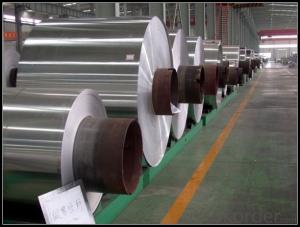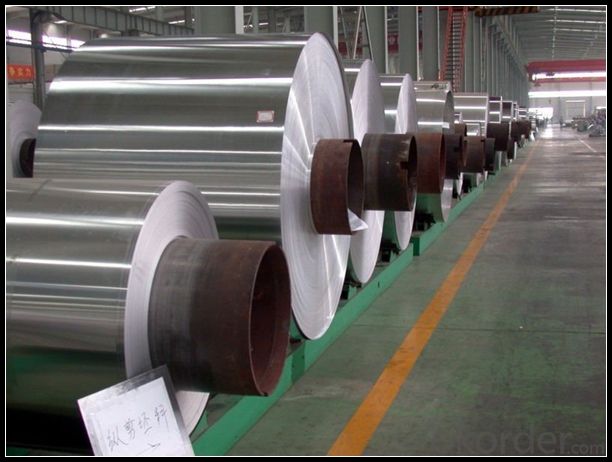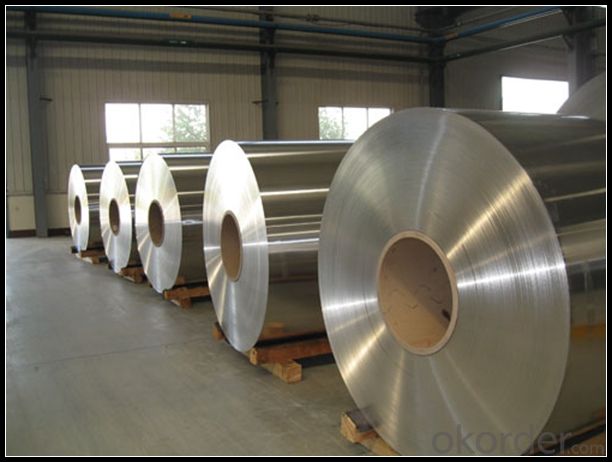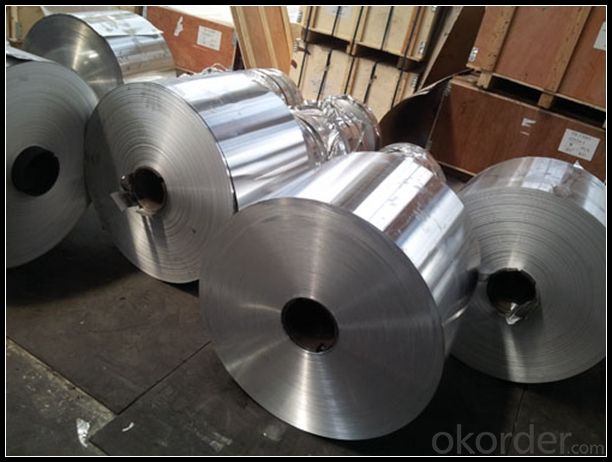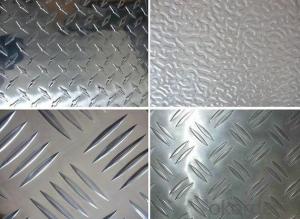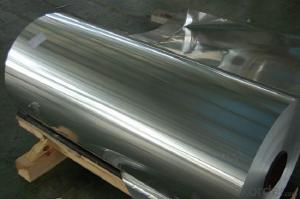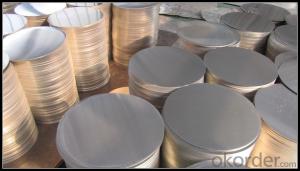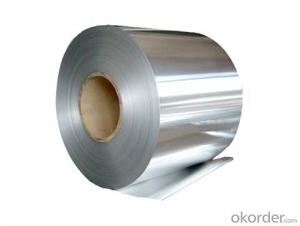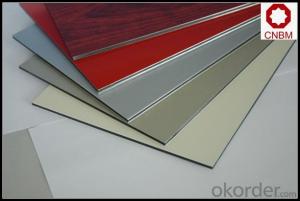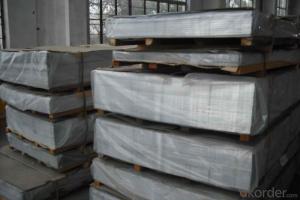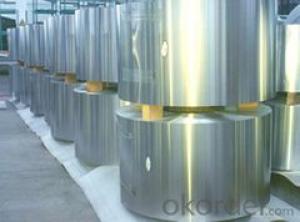Painted Aluminum Coil Price - China Supply High Quality Aluminum Sheet for Lamp
- Loading Port:
- Shanghai
- Payment Terms:
- TT OR LC
- Min Order Qty:
- 4 m.t.
- Supply Capability:
- 3800 m.t./month
OKorder Service Pledge
OKorder Financial Service
You Might Also Like
Specification
1. Specification of Aluminum
1) Alloy | 1050,1060,1100, 3003 3004 3105 3005 5005 5052 etc |
2) Temper | O/H12/H14/H1/H18/H32/H34/H36/H38//H111/H112/H116/H321/T6/T651/T3/T351 etc |
3) Thickness | 0.1mm to 6mm |
4) Width | 20mm to 3300mm |
5) Coil weight | 100kgs to 6 tons depends on actual requirement |
6) Core material | Aluminum alloy |
7) Coil Inner diameter | 76mm, 152mm,or as required |
2. Application of Aluminum
(1).Interior: wall cladding, ceilings, bathrooms, kitchens and balconies, shutters, doors...
(2).Exterior: wall cladding, facades, roofing, canopies, tunnels,column covers , renovations...
(3).Advertisement: display platforms, signboards, fascia, shop fronts...
3. Feature of Aluminum
*Such coil is specially designed to replace aluminum ingot, due to the high export tax of aluminum ingot, the coil has better price than ingot.
*This type of coil can fit customer's remelting furnace just like ingot, no need to make any change to the production line that was previously used for ingot. The standard coil size and weight is very suitable for the feed gate of furnace.
*This type of coil causes less material wastage than ingot when remelted.
*Our coil is made directly from ore, no need to go though the ingot making process, quality is much better than other suppliers who use ingot scrap to make coil.
Be free from Oil Stain, Dent, Inclusion, Scratches, Stain, Oxide Dicoloration, Breaks, Corrosion, Roll Marks, Dirt Streaks and other defect which will interfere with use
4. Certificate:
SGS and ROHS(if client request, paid by client), MTC(plant provided), Certificate of Origin(FORM A, FORM E, CO), Bureau Veritas and SGS (if client request, paid by client), CIQS certificate
5. Image of Aluminum
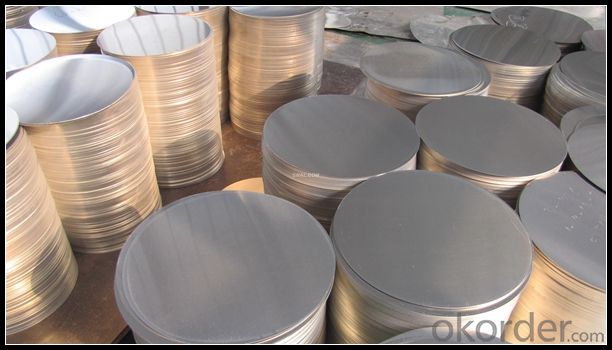
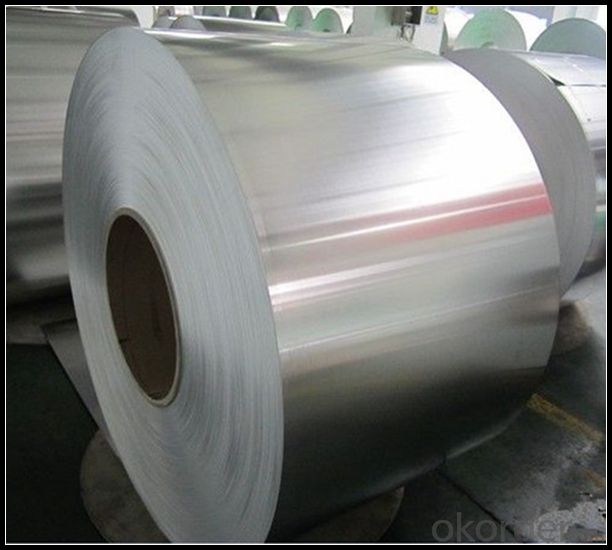
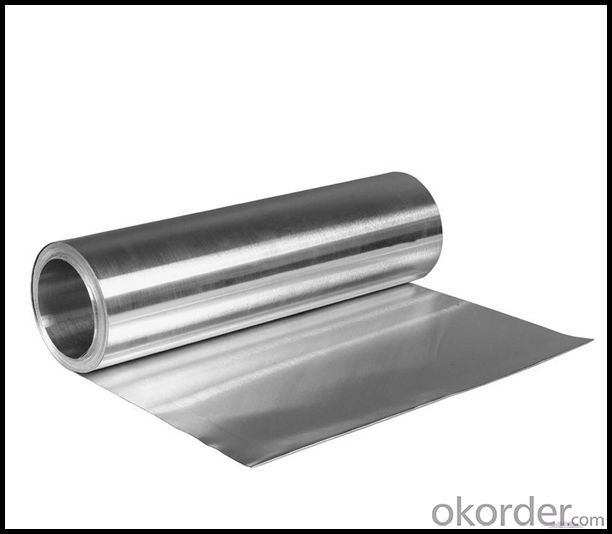
6. Our Service
1. Reply your enquiry in 24 working hours. |
2. OEM, buyer design, buyer label services provided. |
3. Exclusive and unique solution can be provide to our customer by our well traned and professional engineers and staffs. |
4. We can provide free sample for your check |
5. We have the certification of ISO 9001 |
6. Timely delivery |
7. Special discount and protection of sales area provided to our distributor. |
8. Good after-sale service. |
7. FAQ
Q: What is the produce prase? |
A: Normally it would be 40days after received your deposit. |
Q: Can you provide free samples? |
A: Yes, free samples will be sent to you on freight at destination. |
Q: Can I get your latest catalogue? |
A: Yes, it will be sent to you in no time. |
Q: What is the MOQ? |
A: 3 tons |
Q: What are your payment terms? |
A: We accept L/C, D/A, D/P, T/T, West Union,etc. |
- Q: This question asks for methods to prevent rust formation on aluminum coils during indoor storage.
- <p>To prevent rust on aluminum coils when storing them indoors, ensure that the storage area is clean and dry. Keep the coils away from moisture and humidity, as these can cause oxidation. Use protective wrapping or coverings to shield the coils from dust and airborne moisture. Regularly inspect the coils for any signs of condensation or dampness and address these promptly. Maintain proper ventilation in the storage area to reduce humidity levels. Additionally, avoid stacking the coils directly on the ground; use pallets or racks to elevate them, which helps in air circulation and prevents contact with moisture that could be present on the floor.</p>
- Q: What are the common surface finishes available for aluminum coils?
- There are several common surface finishes available for aluminum coils, each offering unique benefits and aesthetic appeal. One of the most popular finishes is mill finish, which is the standard finish applied to aluminum coils straight from the mill. Mill finish provides a smooth, shiny surface without any additional treatments or coatings. Another common surface finish for aluminum coils is anodized finish. Anodizing involves an electrochemical process that creates a durable, corrosion-resistant layer on the surface of the aluminum. This finish can be clear or colored, providing a wide range of options for design and customization. A painted or coated finish is another popular choice for aluminum coils. This involves applying a layer of paint or coating onto the surface of the aluminum to enhance its appearance and protect it from corrosion. Painted finishes can be customized in terms of color, gloss level, and texture, allowing for endless design possibilities. Additionally, brushed finishes are often used for aluminum coils. This finish involves brushing the surface of the aluminum with abrasive materials, creating a pattern of fine lines or scratches. Brushed finishes offer a unique, textured appearance that can add visual interest to various applications. Laminating is another surface finish option for aluminum coils. This process involves applying a thin layer of film or other material onto the surface of the aluminum, providing additional protection against scratches, UV rays, and other elements. Laminated finishes can be glossy or matte, depending on the desired look. Overall, the common surface finishes available for aluminum coils include mill finish, anodized finish, painted or coated finish, brushed finish, and laminated finish. Each finish offers its own set of advantages and can be chosen based on specific requirements such as aesthetics, durability, corrosion resistance, and customization options.
- Q: Are there any health risks associated with aluminum coils?
- Yes, there are some health risks associated with aluminum coils. When aluminum coils are heated, they can release small amounts of aluminum particles into the air, which may be inhaled. Prolonged exposure to high levels of aluminum particles may potentially lead to respiratory issues and lung damage. Additionally, there is a concern that aluminum particles could contaminate food if the coil is used in cooking or food storage. However, the health risks are generally considered to be low if proper ventilation is maintained, and aluminum coils are used within recommended guidelines.
- Q: Why 5052 turn black after annealing during the production of aluminum alloy?
- It has been sooted.
- Q: What is the minimum width of aluminum coils?
- The minimum width of aluminum coils can vary depending on the specific requirements and manufacturing capabilities, but it is typically around 0.5 inches or 12.7 millimeters.
- Q: Is it possible to utilize aluminum coils in the manufacturing process of solar panels?
- <p>Yes, aluminum coils can be used in the production of solar panels. Aluminum is a common material used in solar panel frames due to its lightweight, high strength, and excellent heat dissipation properties. It also offers good resistance to corrosion, which is crucial for outdoor applications. Aluminum coils are often chosen for their ease of manufacturing and cost-effectiveness, making them a suitable choice for constructing the frame or support structure of solar panels.</p>
- Q: Please tell me the model of antirust aluminium coil, it is better to have a detailed introduction. Thank you。 Shandong production of rust resistant aluminum coil manufacturers
- Suitable for pipeline insulation and other heat preservation projects, can be used in the outer packing, mechanical components, refrigerators, air conditioning, ventilation pipes and other humid environment.
- Q: Are aluminum coils resistant to fire?
- Aluminum coils are widely recognized as being fire-resistant. They possess a high melting point of 660 degrees Celsius, which is considerably higher than the typical temperature of most household fires. Consequently, aluminum coils are a favored choice for diverse applications requiring fire resistance, including the construction of buildings, electrical systems, and automotive components. Moreover, aluminum exhibits low flammability and does not emit toxic fumes when exposed to fire, further heightening its fire-resistant characteristics. Nonetheless, it is vital to acknowledge that the fire resistance of aluminum coils may vary depending on the specific alloy employed and the thickness of the coil. Hence, it is always advisable to seek advice from experts or adhere to industry standards to guarantee the implementation of appropriate fire safety precautions.
- Q: Relevant question 5Excuse me, what's the meaning of your "deoiling effect"? And you answer two kinds of performance, my understanding is that the oil removal effect is not good, lead to aluminum volume is not neat, what is the difference between the two? Solution, thank you
- I think the 0.14mm is certainly not the aluminum coil lining sleeve forgot, then the biggest doubt is the oil removal effect is not good, with rolling after the aluminum layer between the leakage for aluminium roll support is not enough, the collapse of the volume, the specific performance is the edge of the circular aluminum layer was uniform into ripples; in addition is a kind of expression is down when the aluminum coil suddenly becomes uneven, but the bad effect caused by oil
- Q: A certain ionic compound is made entirely of aluminum and oxygenWhat is the formula for this compound?
- Aluminium Oxide: Al2O3 The ions: Al3+ .............. O2- When they bond: It is ionic as it takes place by the transfer of electrons from Aluminium(metal) to Oxygen(Non-metal). Hence, the bond is: Al2O3, Aluminium Oxide or alumina.
Send your message to us
Painted Aluminum Coil Price - China Supply High Quality Aluminum Sheet for Lamp
- Loading Port:
- Shanghai
- Payment Terms:
- TT OR LC
- Min Order Qty:
- 4 m.t.
- Supply Capability:
- 3800 m.t./month
OKorder Service Pledge
OKorder Financial Service
Similar products
Hot products
Hot Searches
Related keywords
